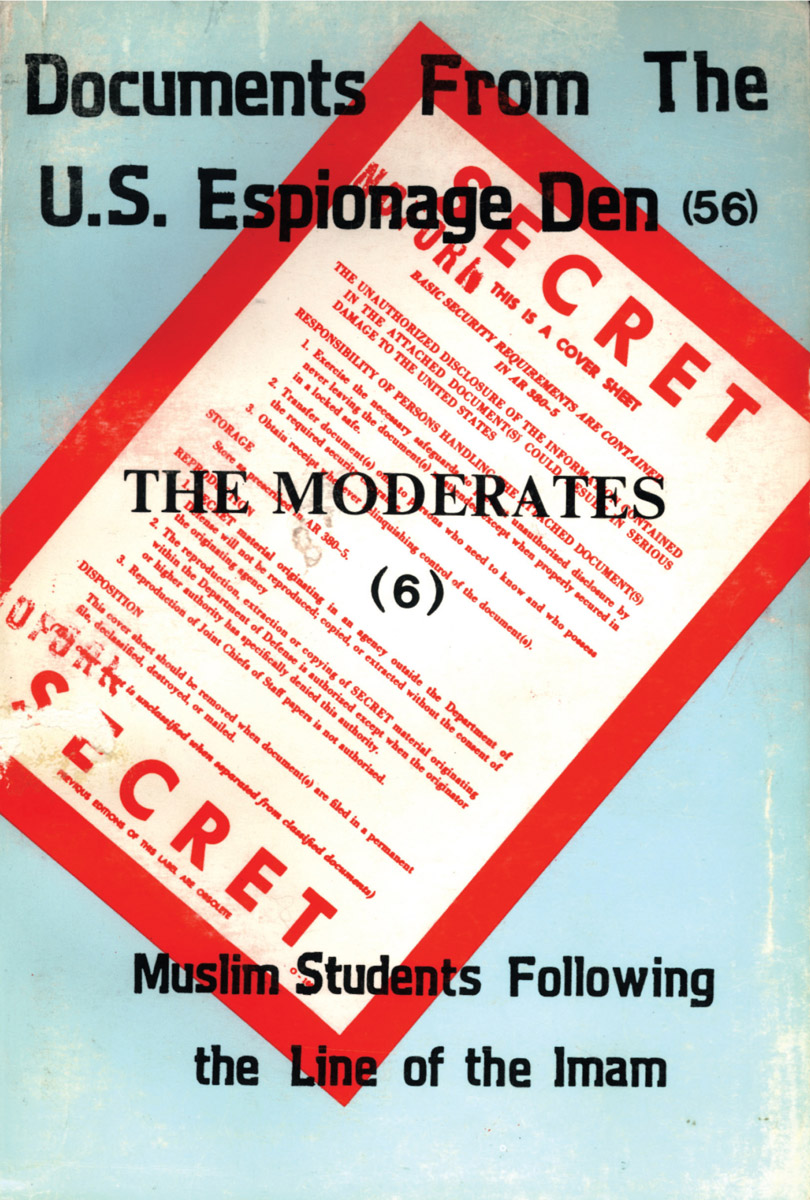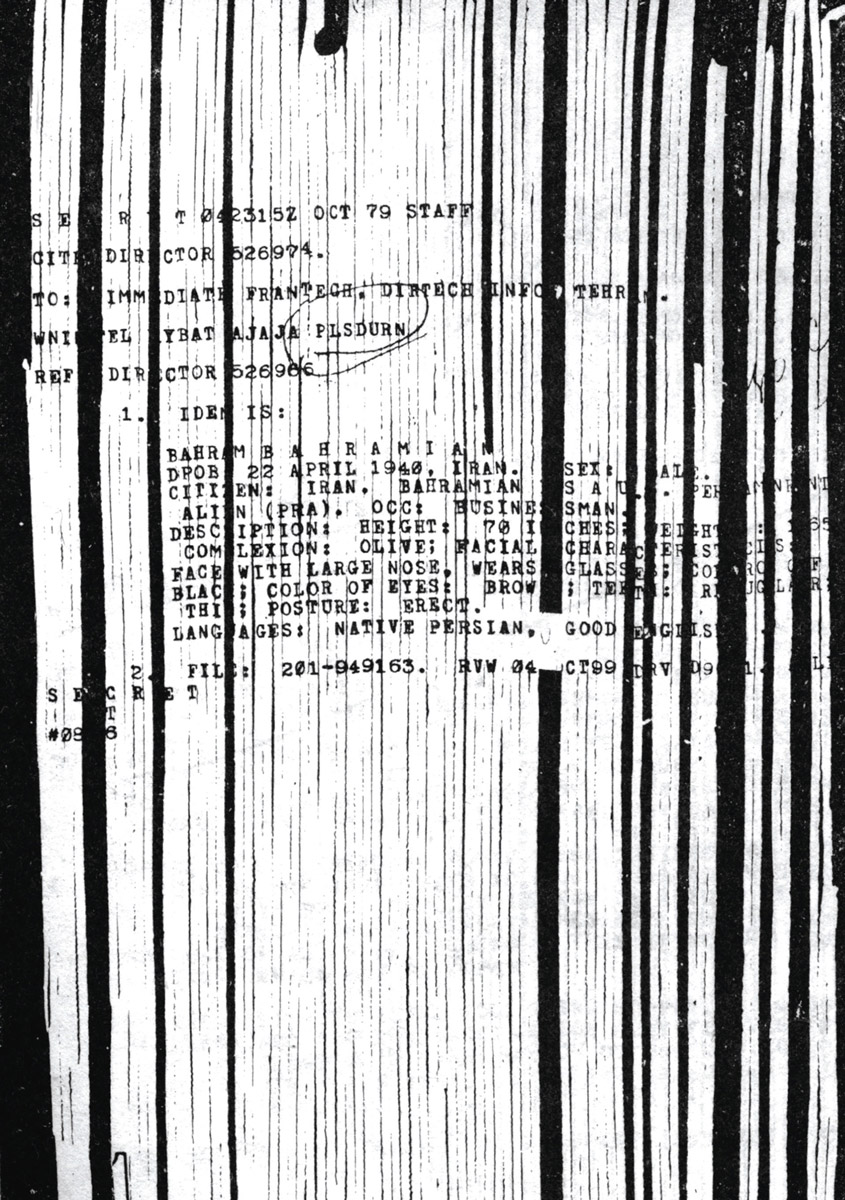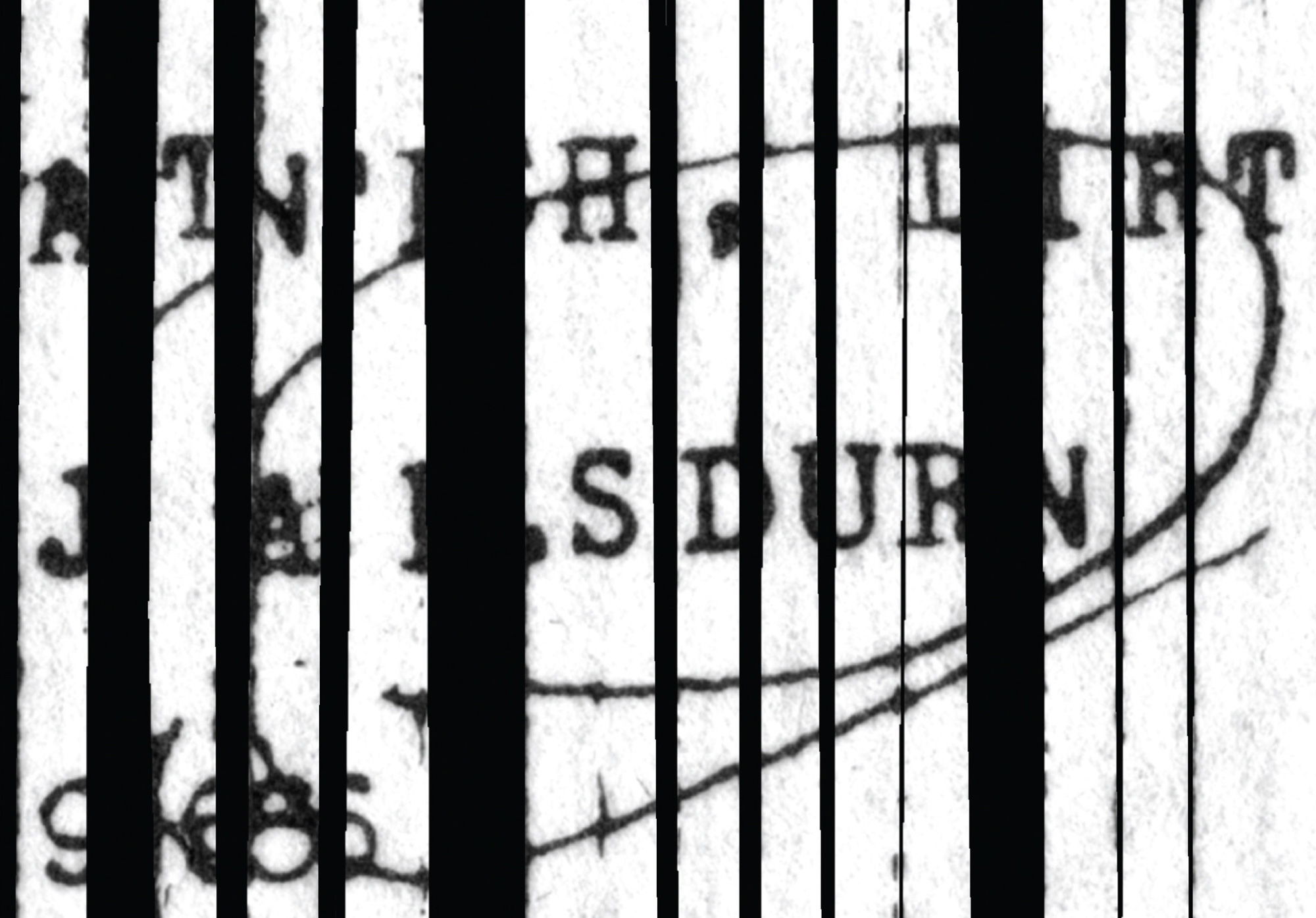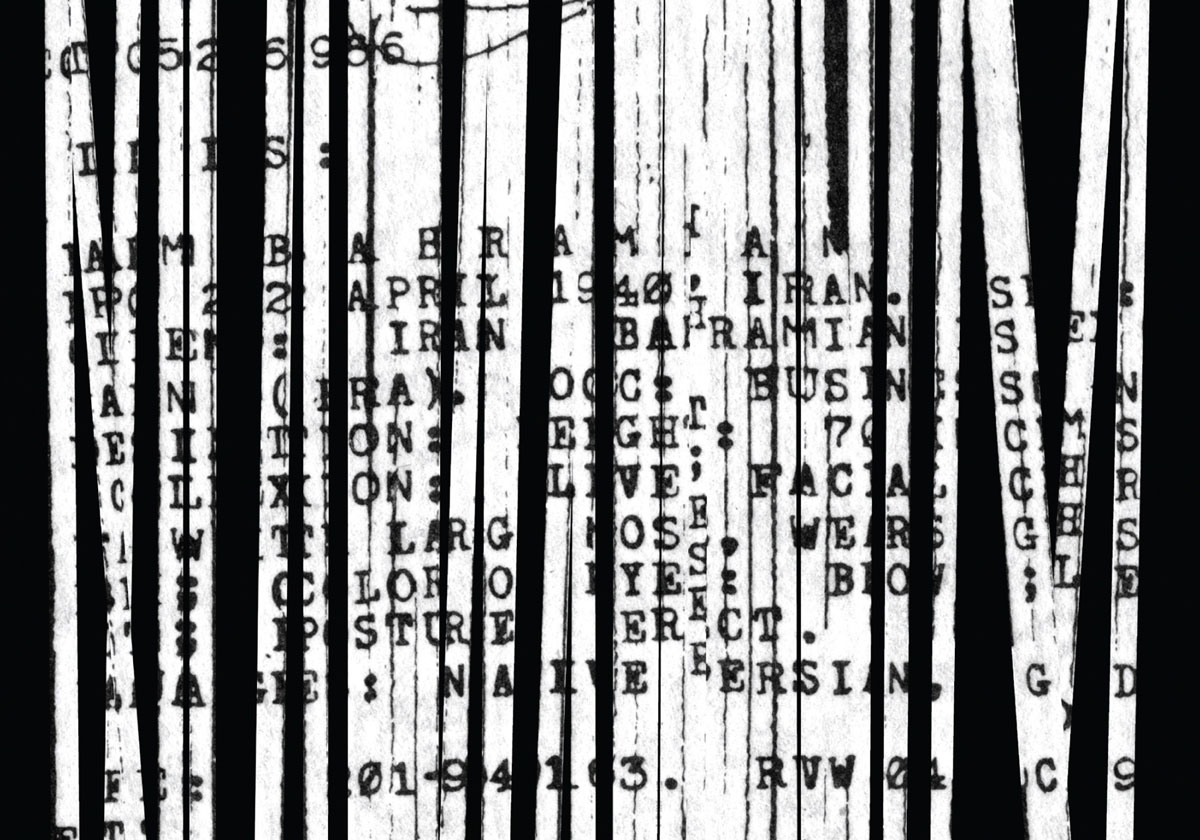Artist Project / Narrative of Sdurn
Documents from the US espionage den
The Speculative Archive
Documents from the U.S. Espionage Den is a 77-volume collection comprised of classified documents captured in 1979 during the takeover of the United States embassy in Tehran. In their haste to evacuate, U.S. officials shredded a significant portion of the documents. A group called Muslim Students Following the Line of the Imam, working with Iranian carpet weavers, pieced together the shredded pages, and over the course of ten years translated and published the entire collection of seized documents. Until recently, a complete set could be purchased in a small store located in front of the former U.S. embassy in Tehran. A handful of libraries in the US currently have the set as part of their collections.
In March 1986, the students published volume #56 of Documents From the U.S. Espionage Den entitled “The Moderates,” a set of documents pertaining to Iranian nationals who were allied with moderate reform groups prior to the revolution. Some of these individuals were contacted by the CIA in hopes that they could provide information about revolutionary tendencies in Iran. The following text produced by the Speculative Archive in 2003 is the imagined recollection of one such contact based on the information provided in the documents.

There is a memory of events leading up to the revolution that was not meant to be ours. It is a collection of documents.
In this collection of documents, there is a memory of my disappearance that is not mine. I have a memory of it, but this one is an official record. And among thousands and thousands of documents, my disappearance is a memory which barely registers. It occupies only a handful of pages. It is a disappearance of no consequence.
It took a lot of work for the students to figure me out, or to confirm what they already knew. A truth! The students reassembled document after document strip by strip. A lot of work but also a kind of faith. A semi-circle could be half an O, but it could also be the start of a C.
What looks like the start of a P could be half of an F. At first nothing matches. Then, a match, “TEHRAN,” and then another word: SDURN. Is that a word? SDURN was the name given to me by the CIA.
I was also given an address in London, under the name James Rafferty, though I never had occasion to use it. Have you ever met an Iranian named Rafferty?
Who did they think I was? The CIA believed me to be a political moderate. True enough. They liked the fact that I was well-connected but that I did not want to blow anything up. They approached me. They thought of me as a friend.
The CIA excelled at making the most obvious of assessments: SDURN is unhappy with the course of the revolution, but also with his status as informant. His relationship with our station is strained. He has stopped making contact. But our relationship was always one of mutual exploitation. To use an American phrase, there weren’t many games in town. I thought I could survive politically, with US help. They thought I could provide them with useful information. We failed each other.
I dropped out of sight. They wanted face-to-face contact.
June 1979: “Recontact plan for SDURN. During first week July, call SDURN, identifying yourself as ‘friend of Mr. Williams.’ Suggest meeting. Whatever day agreed upon, you should be walking north on street near Venetto Pizza restaurant perpendicular Mehr-E-Shah street. SDURN will pick you up in light green VW (one of the very few of its kind in town). Time of meeting is 2030.” But I was a no-show.
Several more meetings are arranged, but I miss every one of them. The Americans finally reach me by phone at home in October. There is someone watching my house. Where did all the secrecy get us? My family is in danger. I am frightened and depressed. I refuse to meet. My handlers seek advice from headquarters on how to help me get out of the country.
Headquarters suggests clarifying my physical description for use in travel documents. The details of my physique must be absolutely correct. Absolutely perfect.
Do you think that the Americans ever negotiated with the students over the captured documents, in an effort to prevent their release? Or that they ever planned a secret mission to win back all the evidence of their stupidity?
On October 6, 1979, they discuss plans for making me into another person: “Following comments are submitted since there is possibility alias documents may be required for exfiltration of SDURN. In search of a nationality that would be plausible, concerning racial features, language knowledge, visa requirements... Portuguese passport issued in Macao seems most desirable.... Propose cover legend of Portuguese businessman residing in Macao who has made previous trips to Hong Kong and Western Europe. Travel would show in passport.... Have capability to issue following support documents: vaccination certificates... Macao resident ID card.... Need old and recent photos of subject.”
I knew nothing of these plans. They were never carried out. I disappeared. It was a disappearance of no consequence.



The Speculative Archive works with existing collections of historical records to produce new documents. Current research focuses on state secrecy as a memory practice and its effects on contemporary political dynamics. Speculative Archive projects have appeared as installations, presentations, and single-channel video. The Archive was founded by Julia Meltzer and David Thorne in 1999.
Spotted an error? Email us at corrections at cabinetmagazine dot org.
If you’ve enjoyed the free articles that we offer on our site, please consider subscribing to our nonprofit magazine. You get twelve online issues and unlimited access to all our archives.